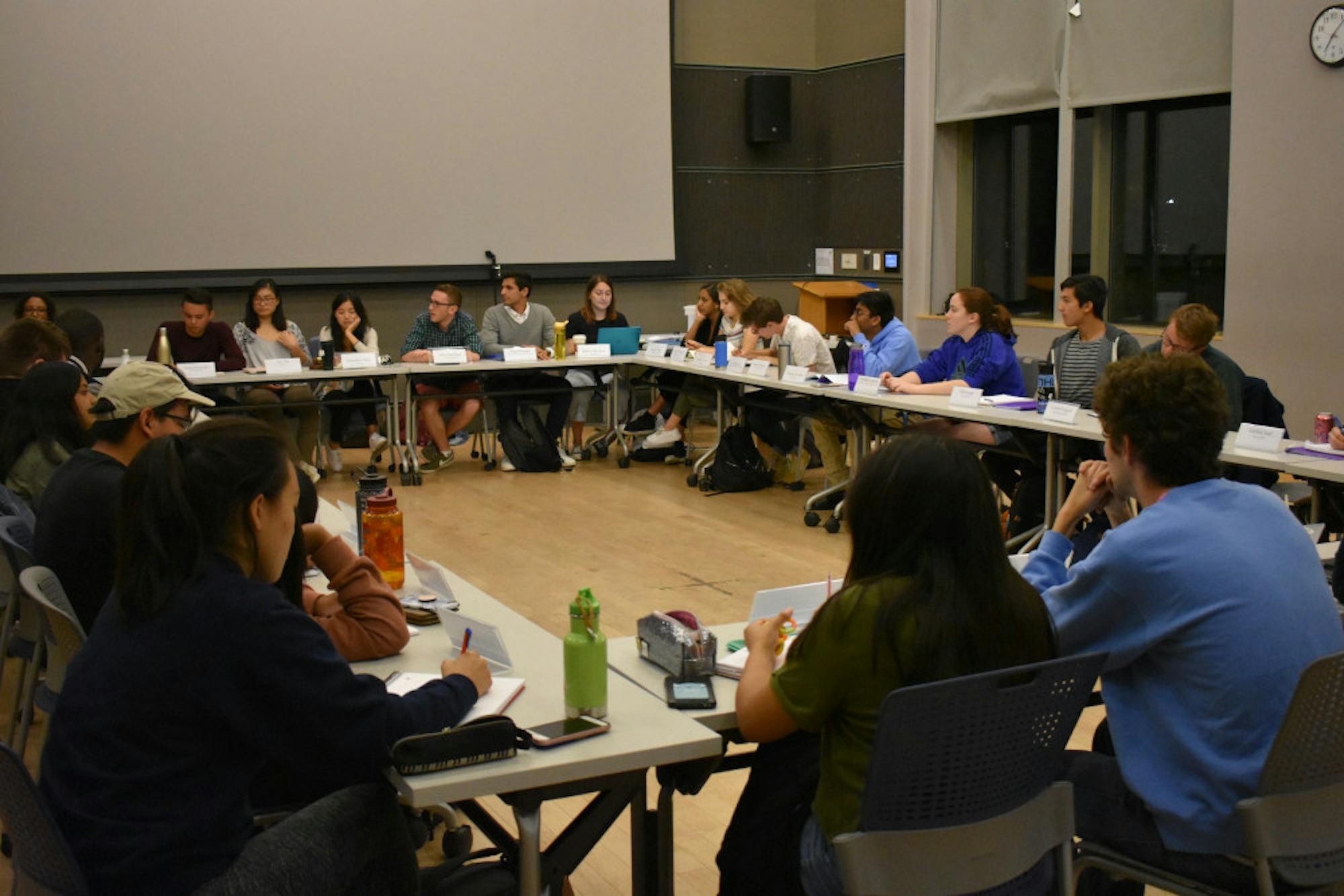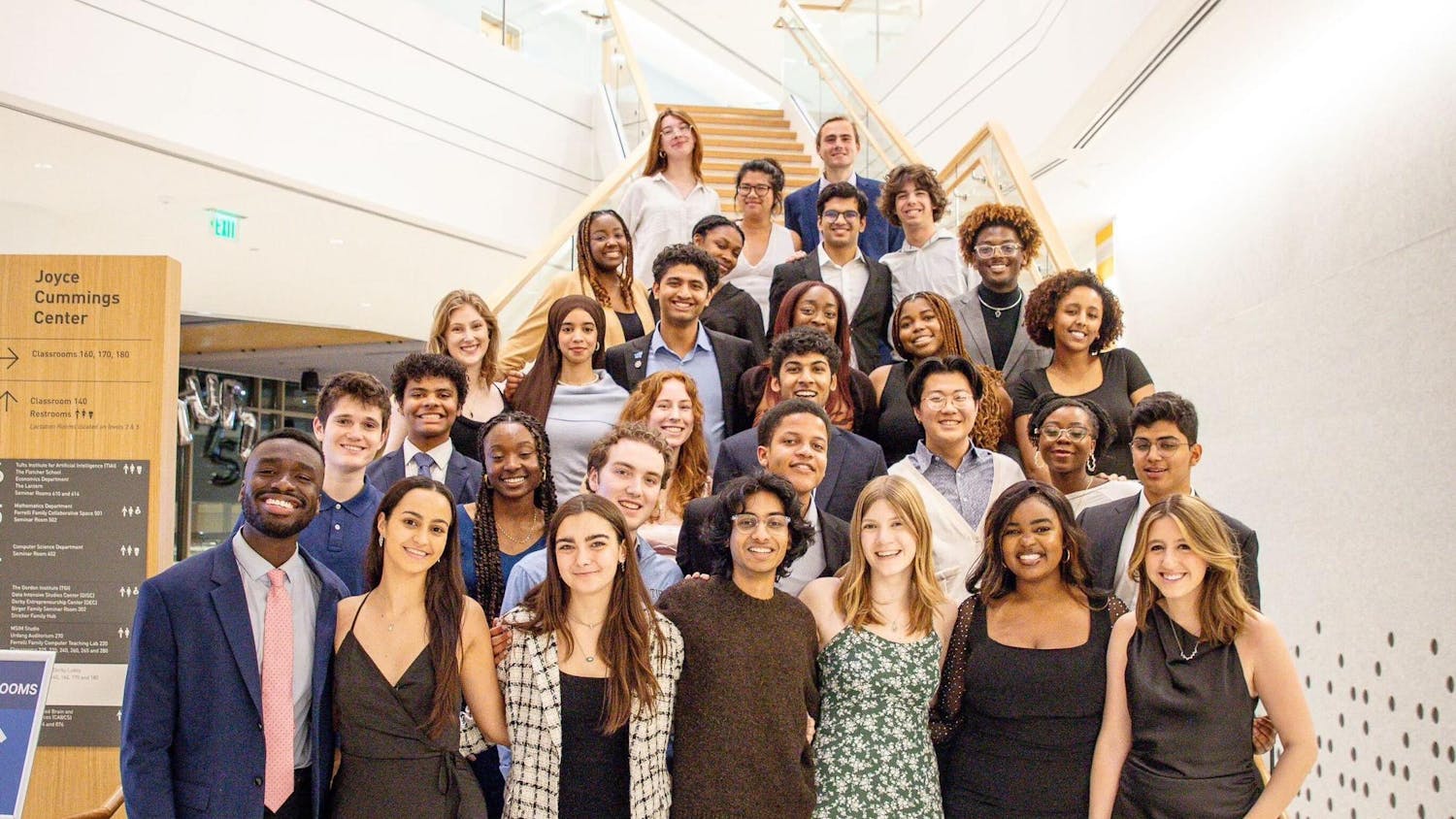The Tufts Community Union (TCU)Senate met Sunday night in the Sophia Gordon Multipurpose Room to hear supplementary funding requests and committee updates and discuss the student code of conduct's updated protest policy.
TCU Treasurer Izzy Ma, a sophomore, started the meeting by introducing a series of supplementary funding requests from student groups.
The body approved supplementary funding requests for the following groups: $924 to the Vietnamese Students Club for a Loj retreat, $2,218 to Tufts oSTEM to attend an oSTEM national conference in Houston, $450 to the Muslim Students Association for a guest speaker to meet the organization, $560 to GlobeMed to attend the GlobeMed Hilltop Conference at Columbia University and $405 to the Global China Connection for a group tour of the Peabody Essex Museum.
Next, TCU President Jacqueline Chen, a senior, opened the body for several general updates from Senate members.
The School of the Museum of Fine Arts at Tufts (SMFA) Liaison Maia Lei, a junior, shared that the SMFA is extending its café for students to have further options. She also noted that there will be ongoing construction at the SMFA campus for the next several weeks.
Trustee Representative Insiya Naim, a member of the Outreach Committee, told the body that the committee is currently working to improve the TCU Senate's social media presence.
“We want more people to be aware of the changes that Senate is making for the student body, and we also want students to know about the opportunities they have to get involved in making those changes,” Naim, a sophomore, told the Daily in an email.
She added that the committee is also working on a new student organization events calendar.
Class of 2021 Senator Griffen Saul shared that he met with Student Accessibility Services to discuss the possibility of having greater shuttle access on the upper and lower campuses for students with limited mobility.
“The purpose of the meeting was to foster a greater understanding of the steps Tufts is currently taking, if any, to improve the physical accessibility, intellectual developmental disabilities services and mental health programs on campus,” Saul told the Daily in an interview.
Then, TCU Vice President Adam Rapfogel, a senior, introduced Committee of Student Life (CSL) Co-Chair Charlie Zhen, a senior, to discuss the protest policy shift with the Senate. According to Zhen, the updated policy change mandates that student protests exceeding 25 people are registered with the administration for approval. He added that, according to the administration, the policy shift has been made so they can better manage security concerns.
He shared that CSL is currently reviewing the policy change, and told Senate that the voices of students are being considered. He also highlighted that CSL currently has open student seats.
The discussion then opened up for questions and comments from the Senate body.
Most notable were several concerns raised by various senators about the administration's usage of the word “approve" in the policy as well as their concern regarding the enforcement and vague consequences for punishment in the new policy.
"Any event that occurs on campus and is expected to attract more than 25 people — including a protest, gathering, or demonstration — must be registered in advance and approved through the event registration process managed by the Office for Campus Life (OCL)," the policy reads.
Zhen told the body that the intention of university approval is not to decide which event it will allow, but rather a way to ensure events are registered.
Class of 2021 Senator Ayden Crosby, a former member of the CSL, explained to the body the administration’s justification for the policy shift.
“One of the reasons that [the administrators] want this registration aspect [is] so that they're sitting the organizers down and saying, 'okay, have you thought of this, or have you thought of this,'” he said. “It’s not intended to discourage people from protesting.”
When asked about the vague nature of the enforcement methods of the updated protest policy, Zhen said that “the intention of the rule is not to punish students, and so the purpose is not to figure out what the punishment is.”
The discussion was also met with push back from Class of 2019 Senator Klavs Takhtani.
“That’s not a good enough reason, that’s just something the administration is going to end up saying. [The protests] are meant to be disruptive,” Takhtani said.
The Senate had a closed discussion at the end of the meeting to review the structure of the Board of Trustees so that Senate members could better understand where to direct the requests and thoughts of the larger Tufts body.
TCU Senate discusses updated protest policy

The Tufts Community Union Senate convenes in the Sophia Gordon Multipurpose room on Sept. 30.





